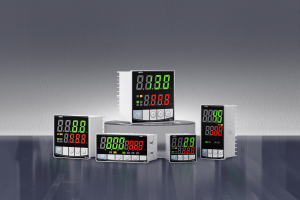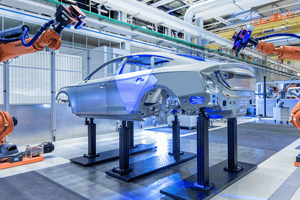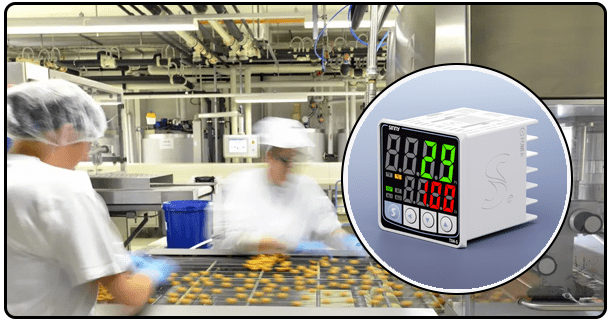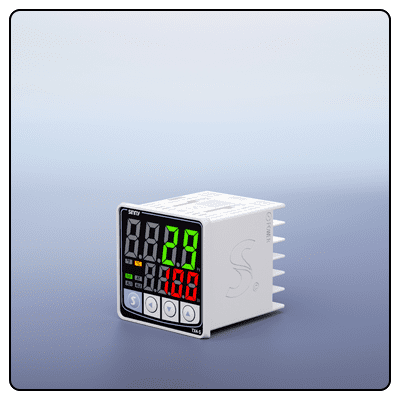Discover the Benefits of PID Temperature Controllers in Food Processing
Discover how PID Temperature Controllers have revolutionized food production processes. See how their enhanced stability, energy efficiency, and precision control contribute to superior product quality, reduced operational expenses, and operational excellence.
1. Introduction
Overview of Temperature Control in Food Processing
Proper temperature management in food production is vitally important to product quality and safety, with variations causing inconsistencies in texture, flavor, shelf stability or health risks due to improper temperature management posing serious threats of microbiological growth that threaten human health risks. Traditional temperature controls often struggle with maintaining exact temperatures which leads to inefficiencies or wastage of products produced.
2. Introduction to PID Controllers
PID controllers (Proportional-Integral-Derivative controllers) are advanced control systems designed to maintain a setpoint by continuously calculating an error value - the difference between what was desired and actual process variable -and their current process variable value. PID controllers adjust process control inputs accordingly in order to minimize this error value: proportionally responds proportional to current errors while integral accounting covers past ones while derivative predicts future errors based on rate of change; their triadic design ensures more precise and stable control than traditional on/off controllers could ever achieve.
3. Advantages of PID Temperature Controllers
Enhanced Temperature Stability
PID Temperature Controllers have many advantages that make them appealing, including increased accuracy in temperature management.
PID temperature controllers boast one of the main benefits of PID temperature control - increased temperature stability. This feature can be particularly valuable in food processing operations where even minor deviations in temperatures can negatively impact final products' quality; such as during chocolate tempering where precise temperature regulation ensures crystal structure forms with optimal snap and sheen for consistent product quality. PID controllers ensure temperatures stay within their designated range to provide consistency product quality over time.
Enhance Energy Efficiency
Another significant benefit is enhanced energy efficiency. PID controllers help optimize heating and cooling cycles so only as much energy is consumed as necessary to meet setpoint temperature - leading to reduced operational costs and environmental footprint, along with savings that translate directly into lower operational budgets for food processing plants where energy accounts for an outsized share. This efficiency could yield considerable cost-savings in this regard.
Increased Production Efficiency
PID controllers play a pivotal role in increasing overall production efficiency. Their ability to respond swiftly and precisely to temperature variations minimizes downtime and production delays; for instance in pasteurization processes rapid adjustments are important in order to heat product evenly over an appropriate length of time, thus increasing overall productivity and increasing overall productivity.
Better Process Control and Accuracy
PID controllers' high accuracy at maintaining setpoint temperatures allows for improved process control and accuracy, particularly for processes requiring stringent temperature regulation, such as fermentation in dairy industries or baking in bakery industries. Maintaining correct fermentation temperatures ensures growth of beneficial bacteria which directly contribute to product quality; similarly in baking applications precise temperature management ensures uniform baking results and consistently quality batches over time.
Scalability and Adaptability
PID controllers boast both the scalability and adaptability necessary for many food processing applications, making them suitable for various food production situations. Their adaptable nature enables easy integration into existing systems while meeting any number of processing demands; be it small-scale artisanal bakery production lines or industrial food plants of any kind, PID controllers can easily meet each company's individual processing requirements - adaptability ensures businesses scale operations without losing quality or efficiency when expanding operations.
4. Case Studies or Examples
Example 1: Baking Industry
Whilst consistent oven temperatures are essential to producing tasty baked goods with consistent texture, flavor, and appearance; maintaining them can often prove challenging due to temperature variances resulting from uneven baking processes. PID controllers help prevent this by accurately controlling oven temperatures with pinpoint precision while at the same time cutting energy costs through energy efficiency improvements; PIDs therefore represent an invaluable investment opportunity for bakeries of any size.
Example 2: Dairy Processing
PID controllers play an essential part in dairy processing processes such as pasteurization and fermentation. PID controllers play an instrumental role during pasteurization by maintaining precise temperatures over an appropriate duration to kill off harmful bacteria while protecting nutritional quality of milk; PID controllers help make this possible while simultaneously producing safe products with high-quality yield. Precise temperature regulation also plays a vital part during fermentation processes which directly contributes to growing beneficial bacteria colonies that enhance flavor of yogurts or cheese products such as cheese.
Implementation Considerations
Selecting an Appropriate PID Controller
Finding an ideal PID controller for food processing applications involves several considerations. First and foremost is understanding your control requirements of the process - such as desired temperature range, level of precision required and speed of response times should all be factored in. Also important are considering operating environment factors like ambient temperature, humidity levels and potential exposure to corrosive materials to ensure its durability and reliability.
Compatibility between PID controller and existing systems and equipment should also be carefully considered when choosing a controller, to achieve maximum performance and optimal operation. Selecting one with user-friendly interfaces and straightforward programming allows operators to quickly set up parameters as necessary and modify as required.
5. Installation and Calibration
Proper setup is essential to the optimal functioning of PID temperature controllers. Installation should follow manufacturer recommendations to ensure correct setup; this may involve positioning sensors correctly, installing proper wiring connections and configuring controller settings based on process specific criteria.
Calibration is another integral aspect of PID controller accuracy and reliability, and should be carried out regularly to verify its setpoint temperature is maintained accurately by comparing readings against known reference temperatures to determine discrepancies that require adjustments for optimal long-term performance and accuracy of your controller. Routine maintenance helps preserve long-term performance of this critical piece of machinery.
Maintenance and Monitoring
To maintain optimal performance of PID temperature controllers, regular maintenance and monitoring are absolutely vital to their function. This should include regular inspections to check for signs of wear such as damaged wiring or sensors as well as timely replacement of any defective parts to minimize production disruptions.
Monitoring a PID controller involves closely watching its response to temperature variations and making sure that it maintains the setpoint accurately. Advanced PID controllers often come equipped with features designed to provide real-time data and alerts should any deviations be detected; taking advantage of such monitoring features can quickly identify and address any potential problems for more consistent and reliable temperature regulation.
6. Conclusion
Summary of Key Benefits
PID temperature controllers offer many advantages for food processing operations. Their ability to maintain enhanced temperature stability ensures consistent product quality, while increased energy efficiency results in cost savings and reduced environmental impacts. Increased production efficiency as well as better process control and accuracy further contributes to overall effectiveness. Moreover, due to scalability and flexibility they make PID controllers ideal solutions for small operations up to large industrial plants.
Future Trends
Looking ahead, advances in PID technology could offer further advantages to food processing industries. Innovations like adaptive and self-tuning PID controllers which dynamically adjust parameters based on process conditions should help increase control accuracy while decreasing manual interventions. Meanwhile, integration with IoT (Internet of Things) systems or smart factory platforms will enable real-time data monitoring, further increasing efficiency and decision-making processes.
- How to Maintain Your PID Temperature Controller for Longevity
- Selecting the Ideal PID Controller Optimize Your System's Efficiency























